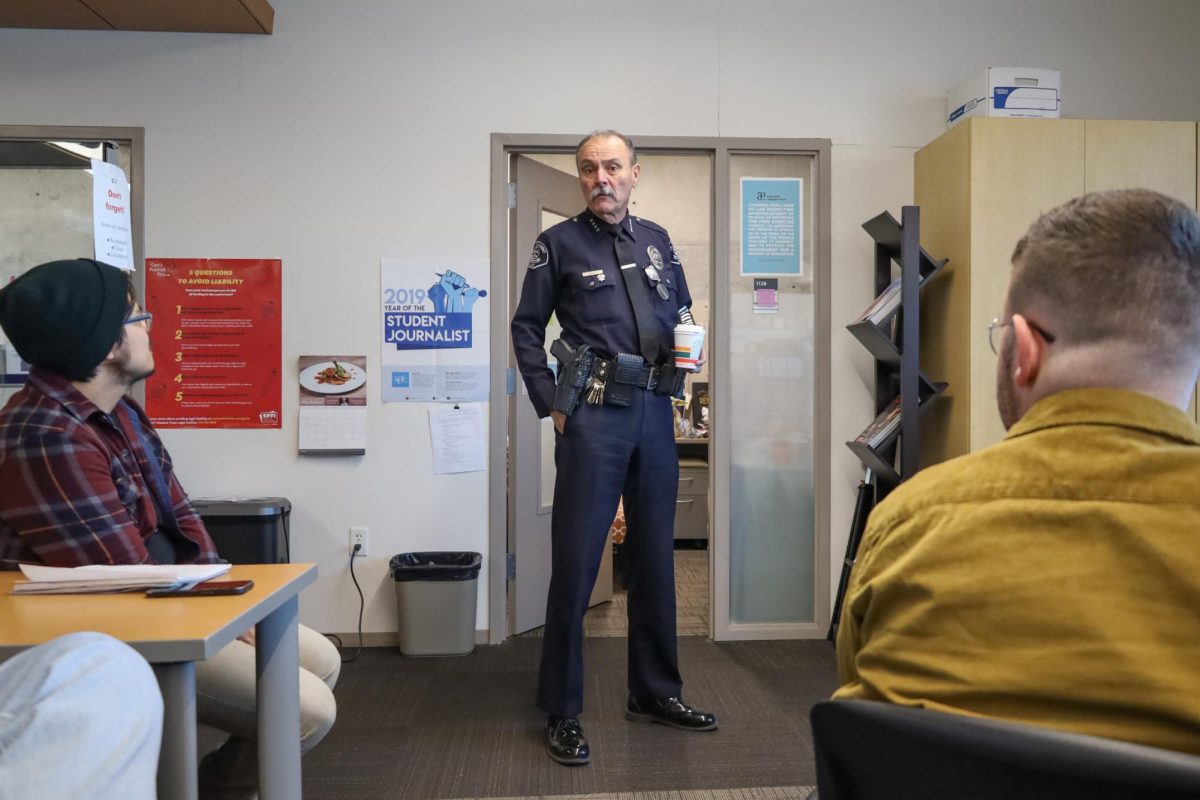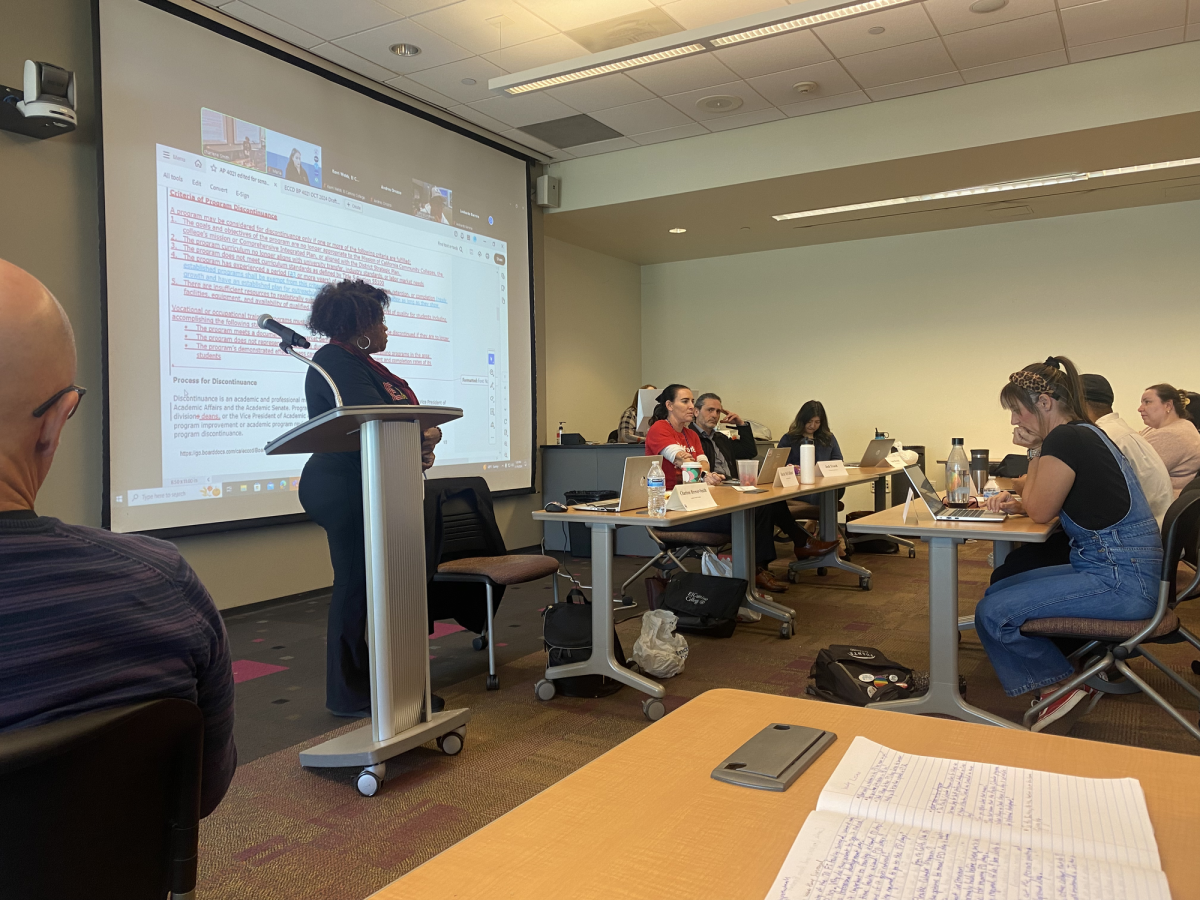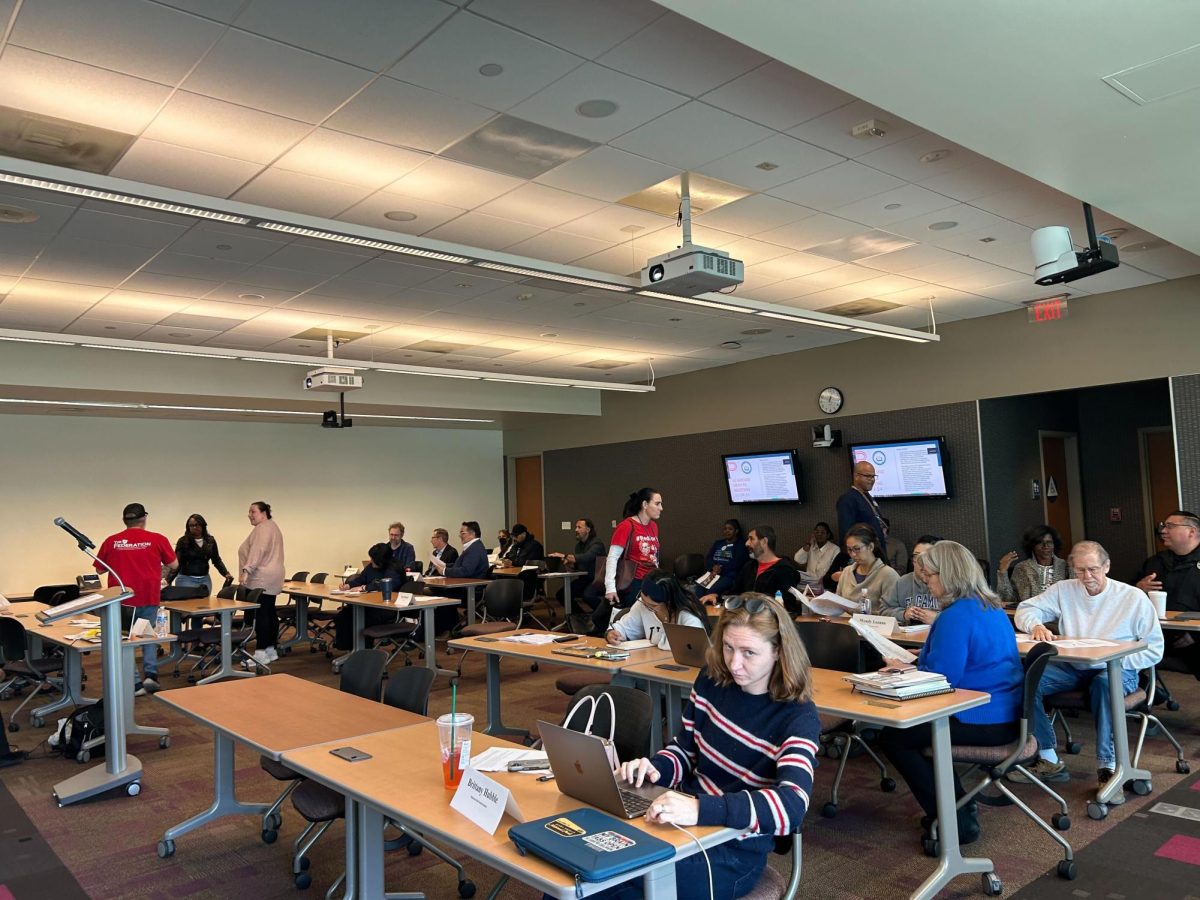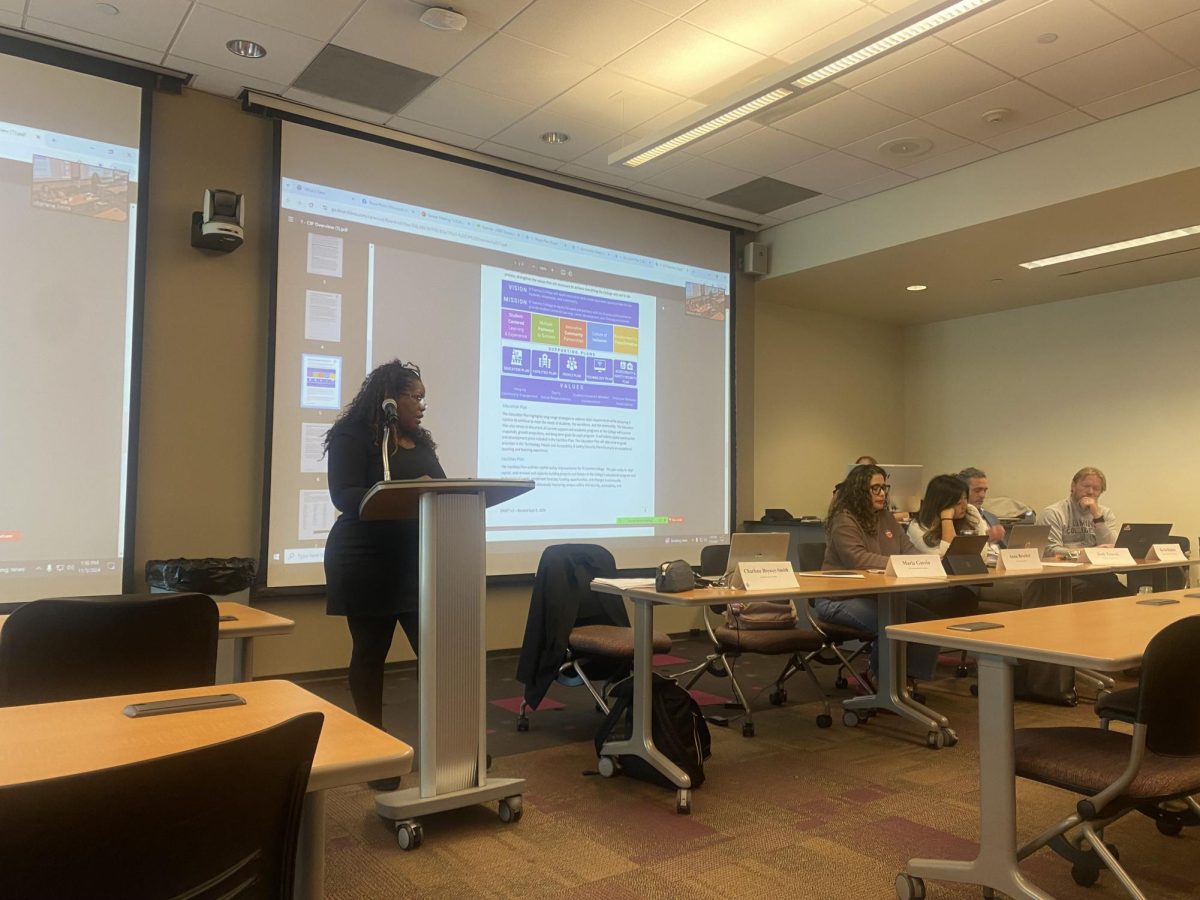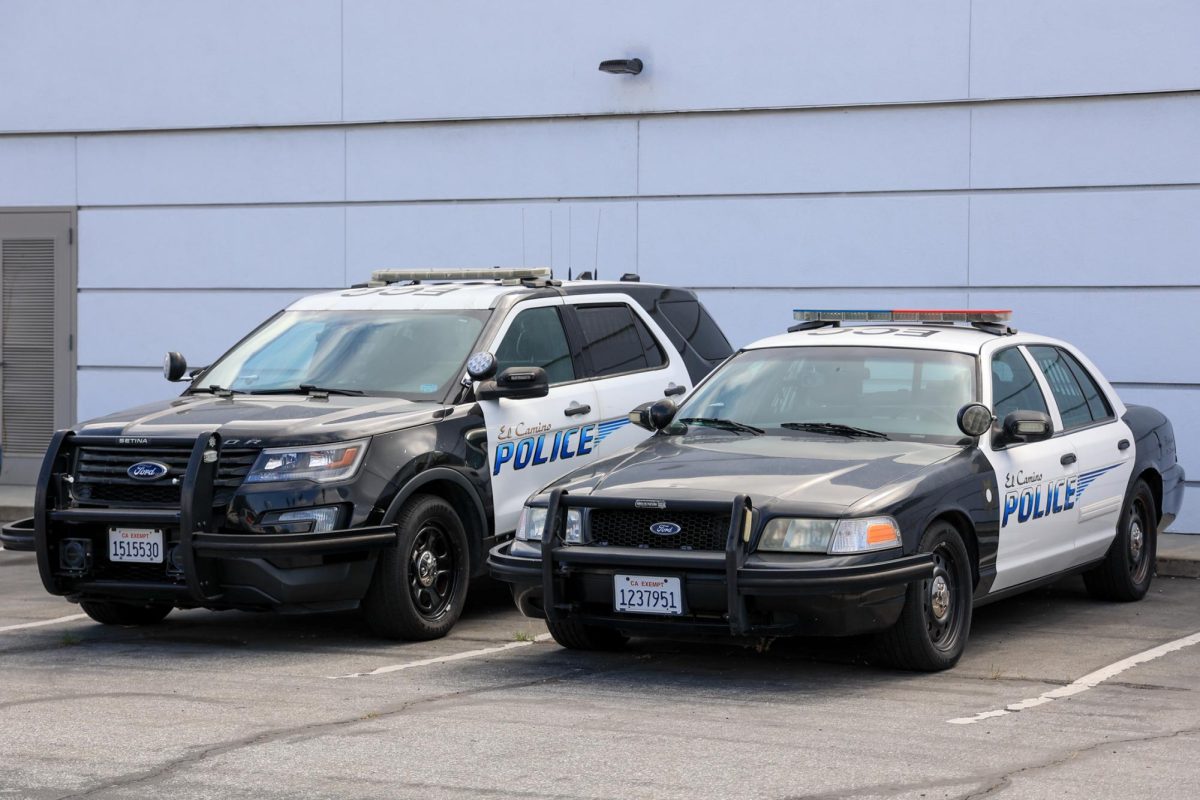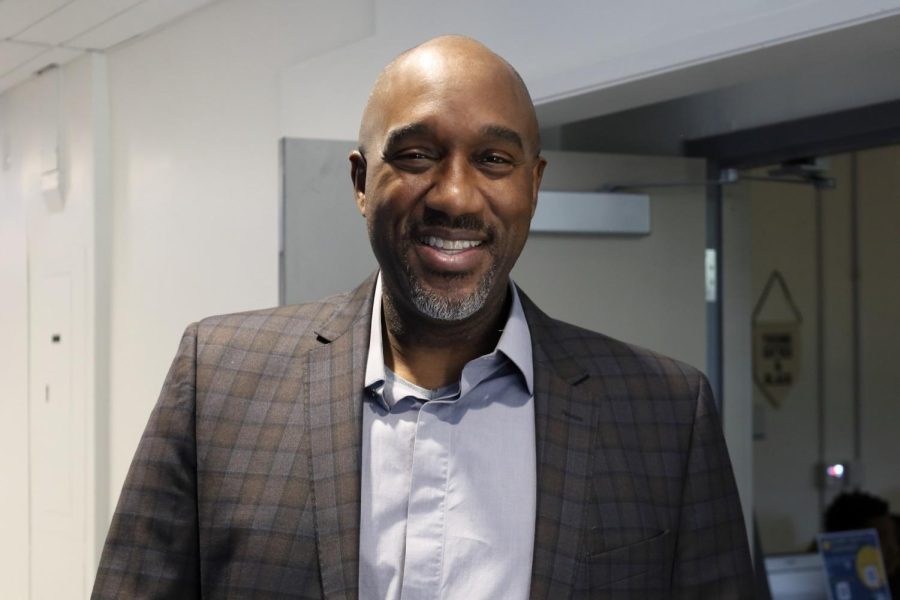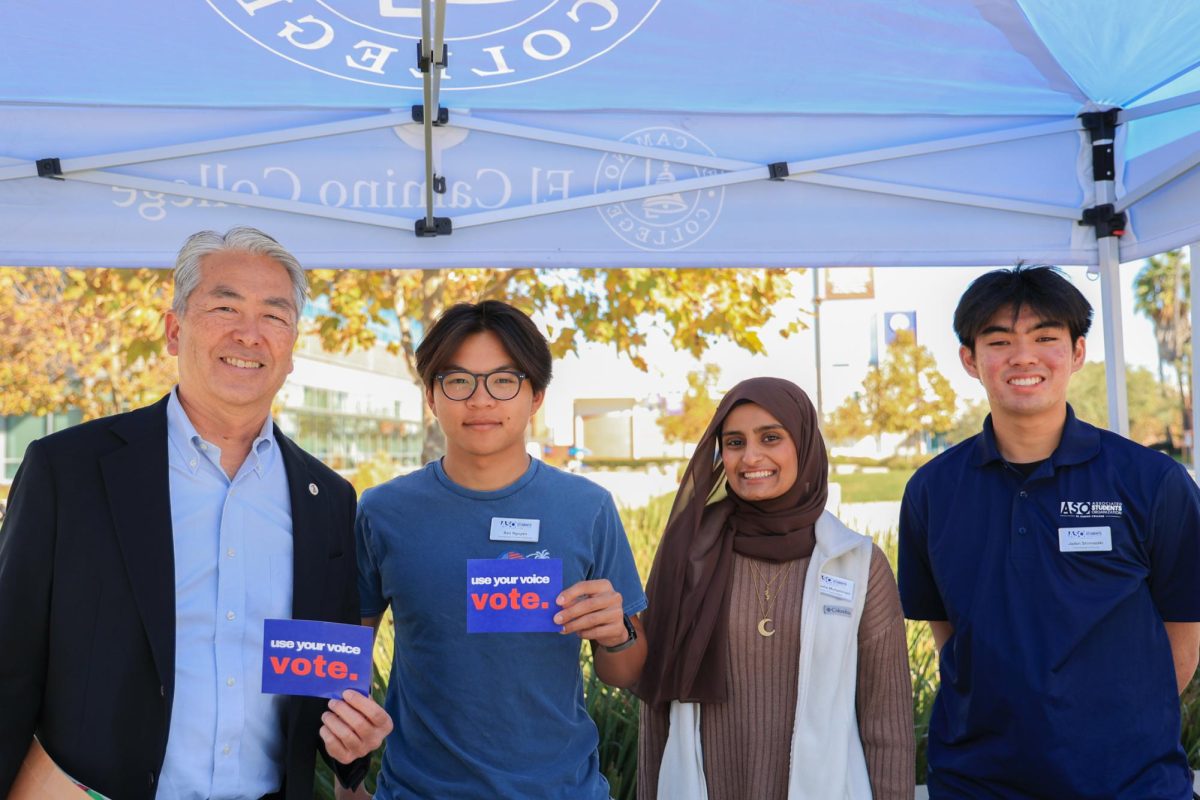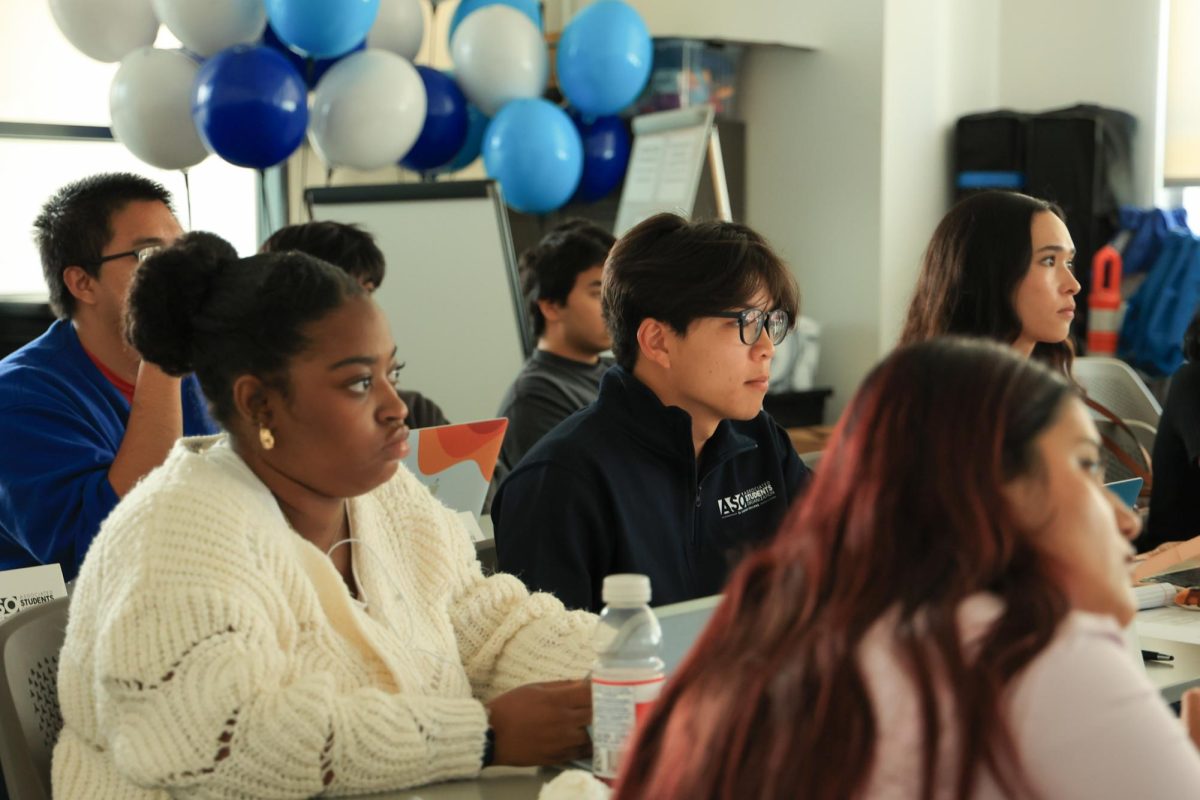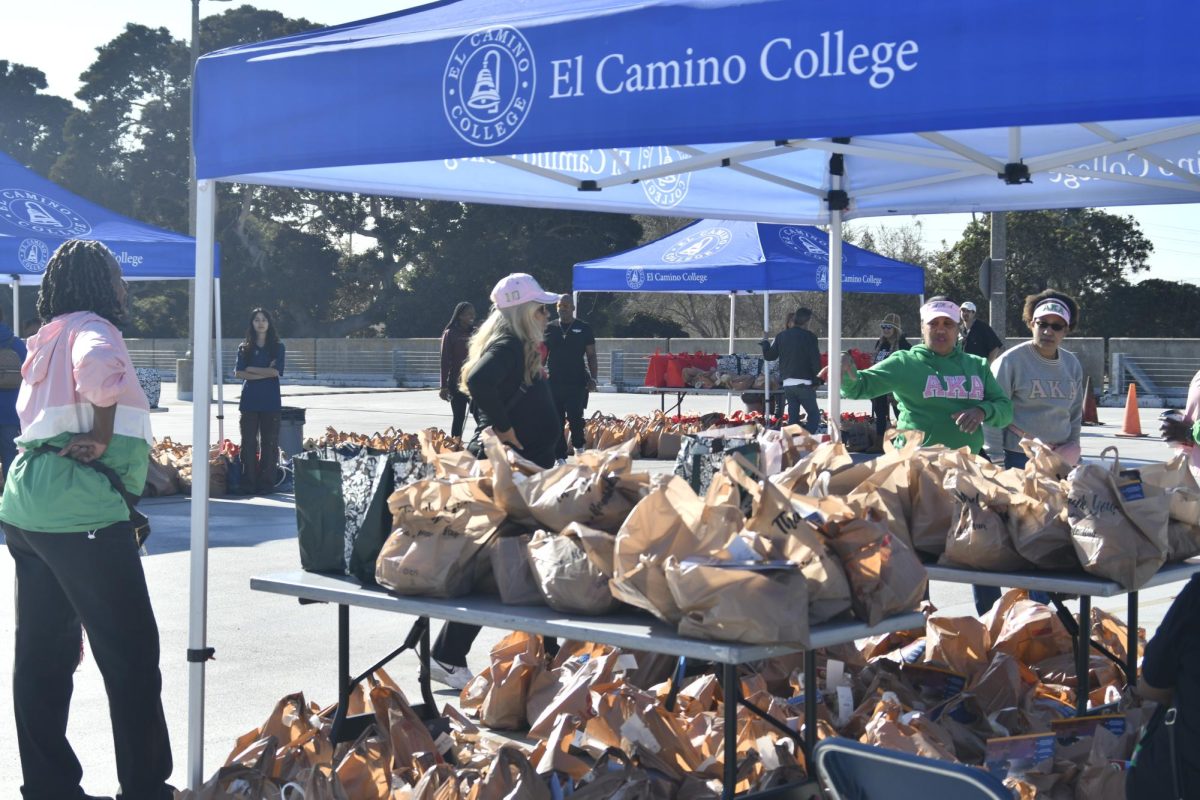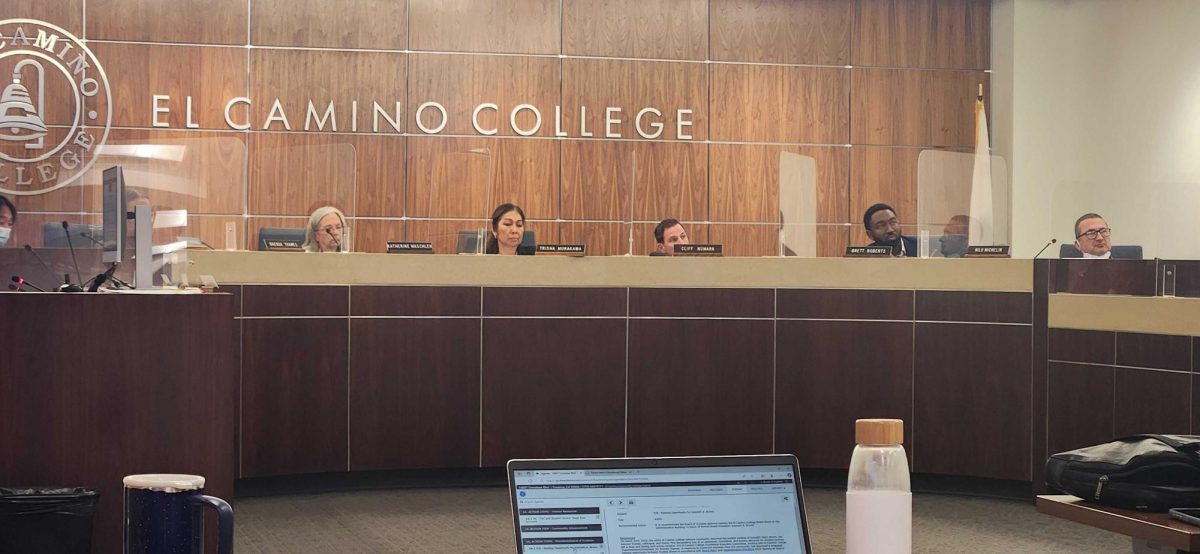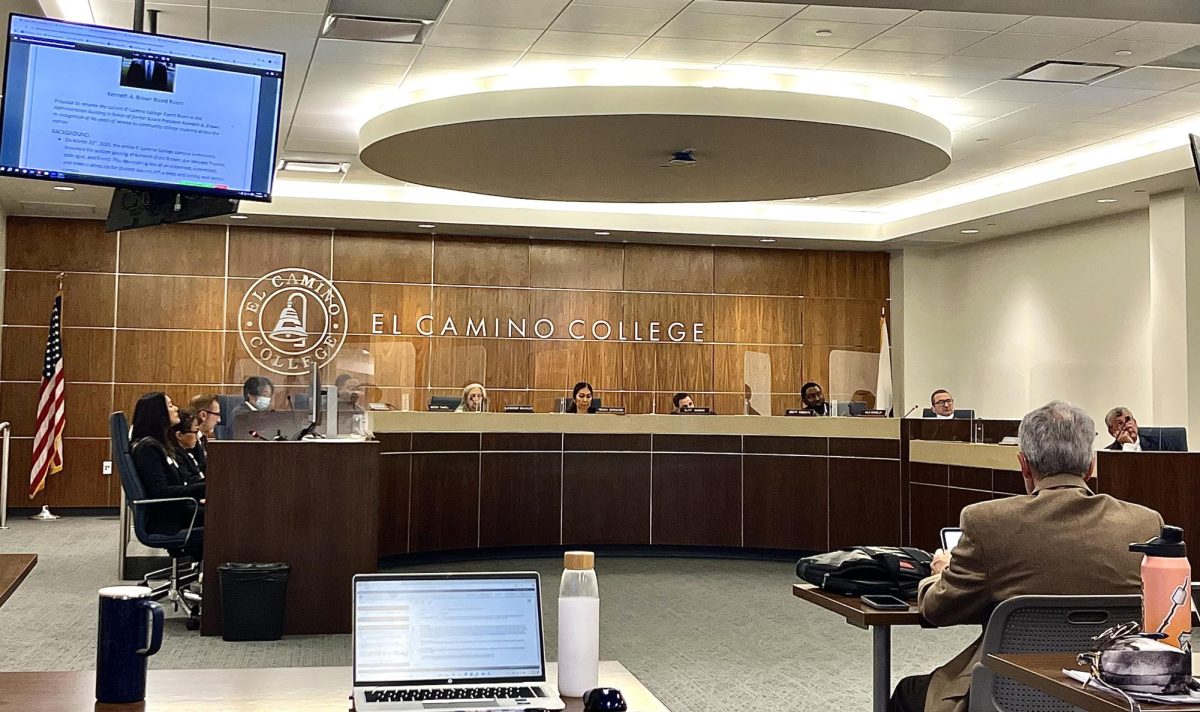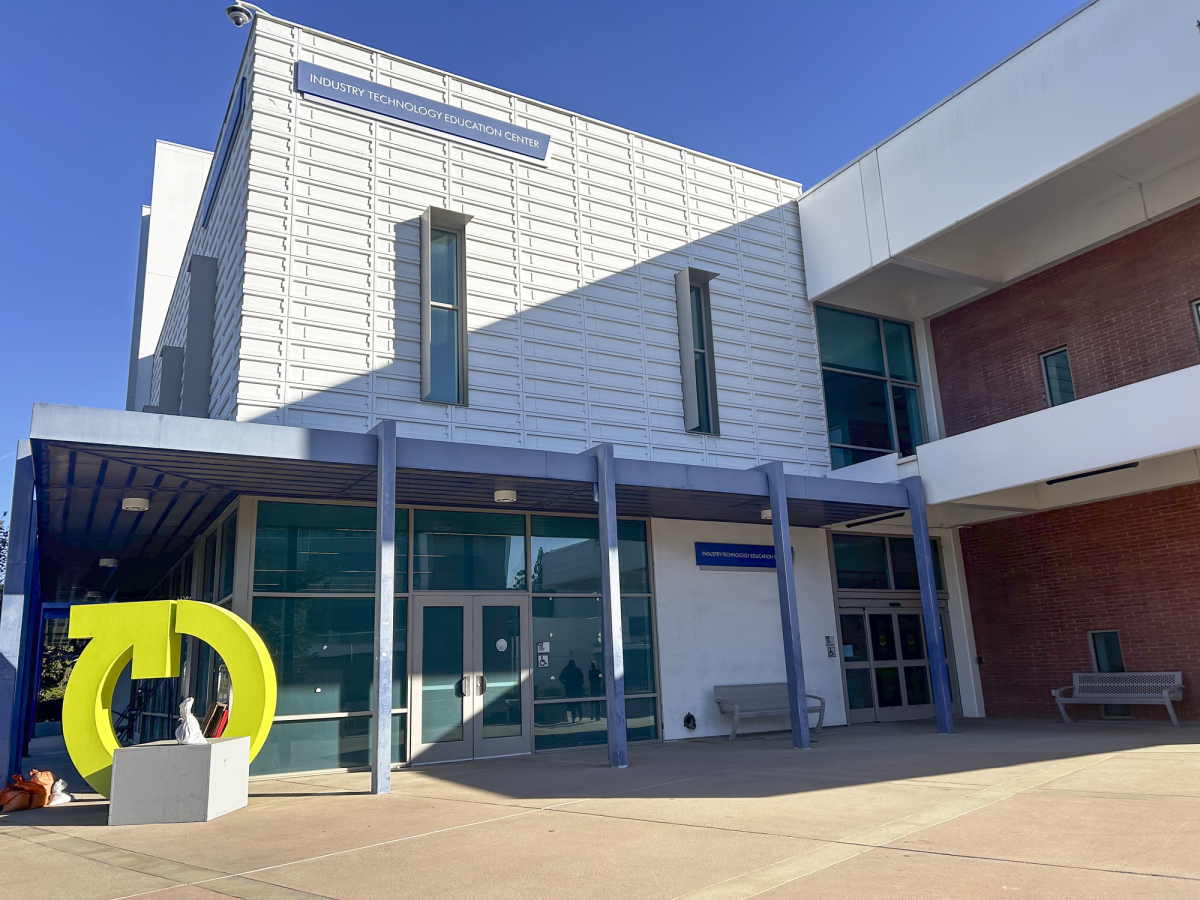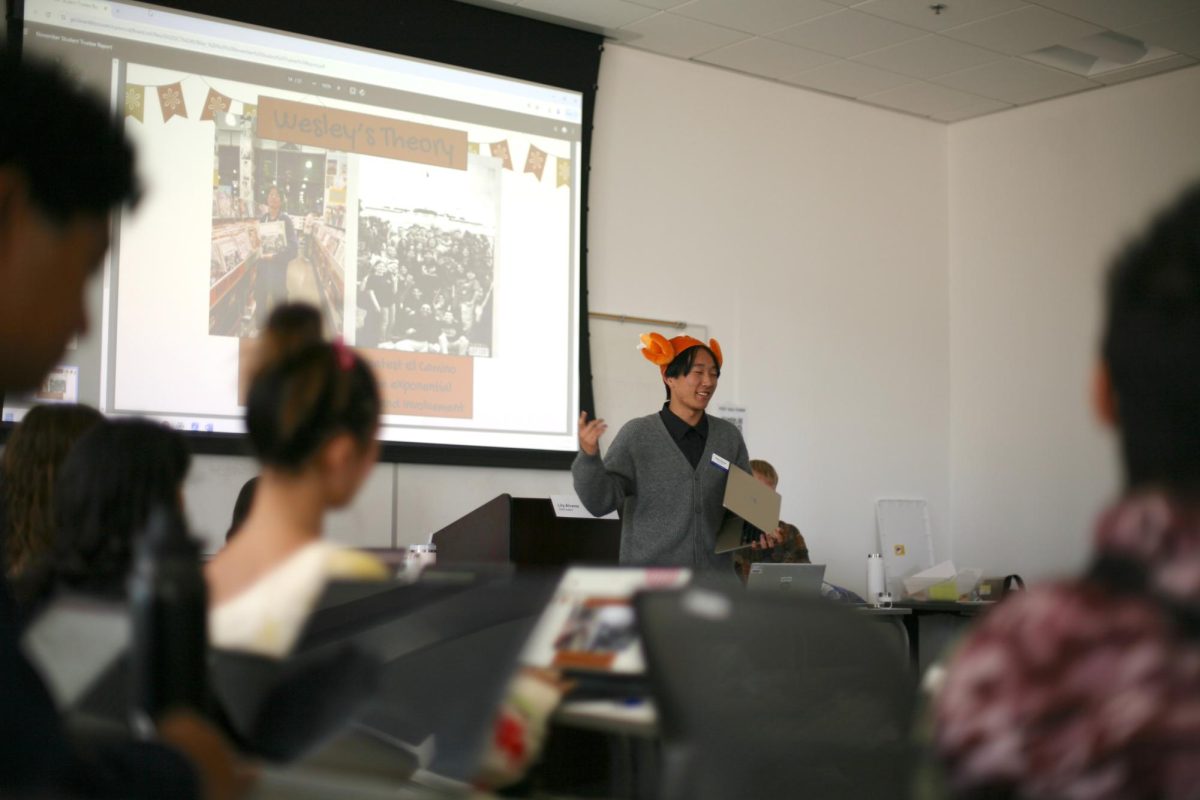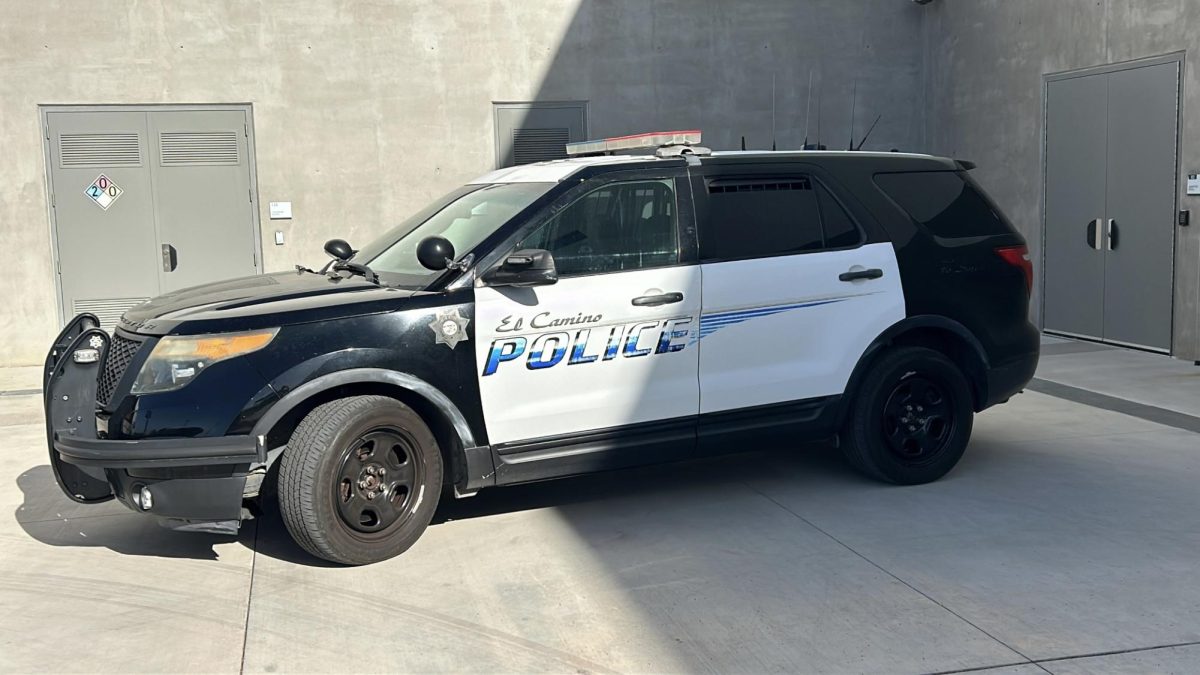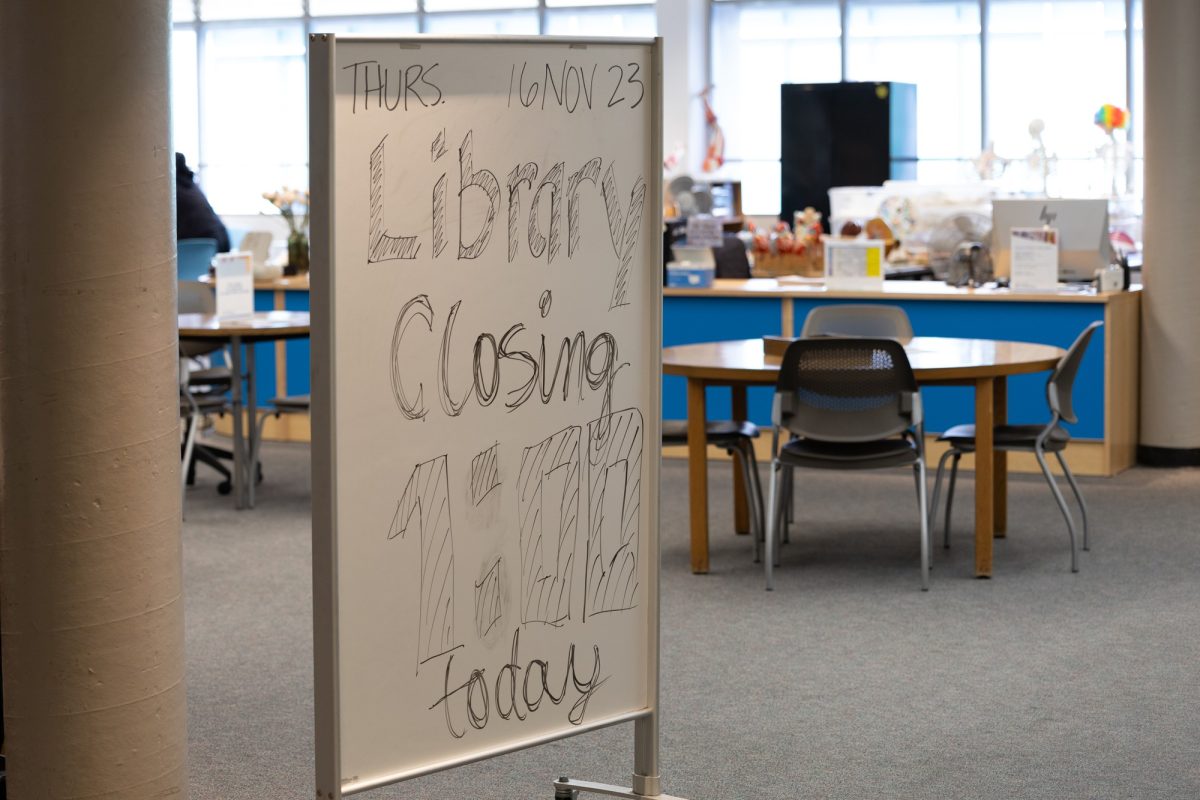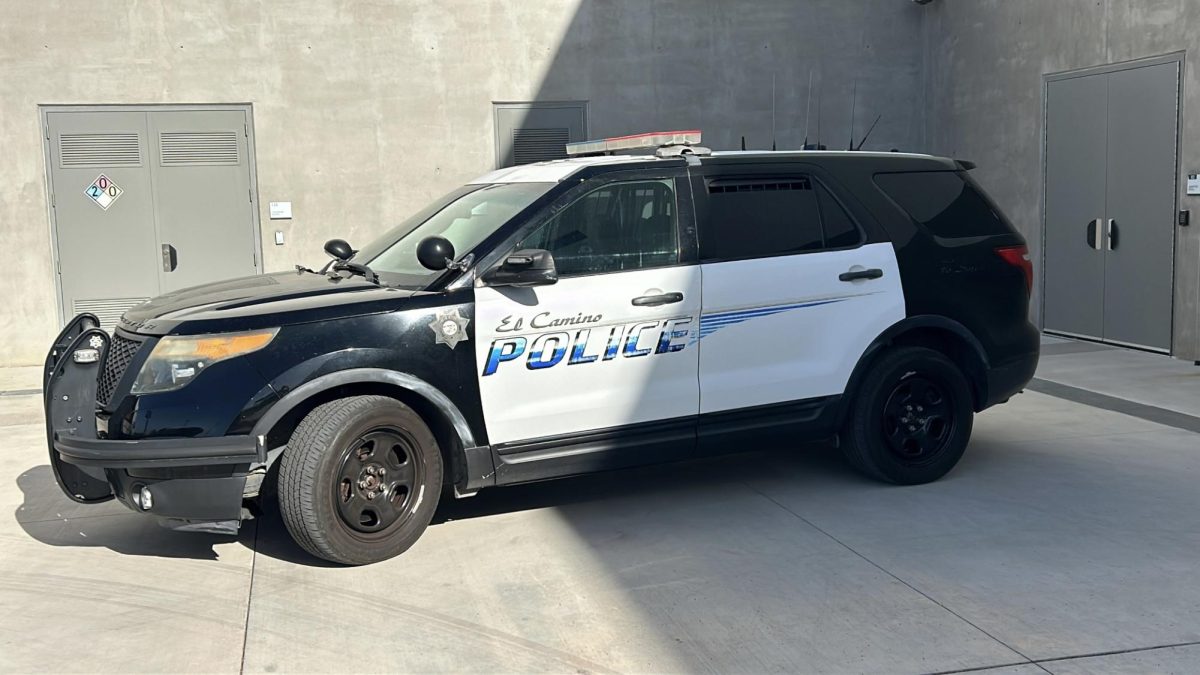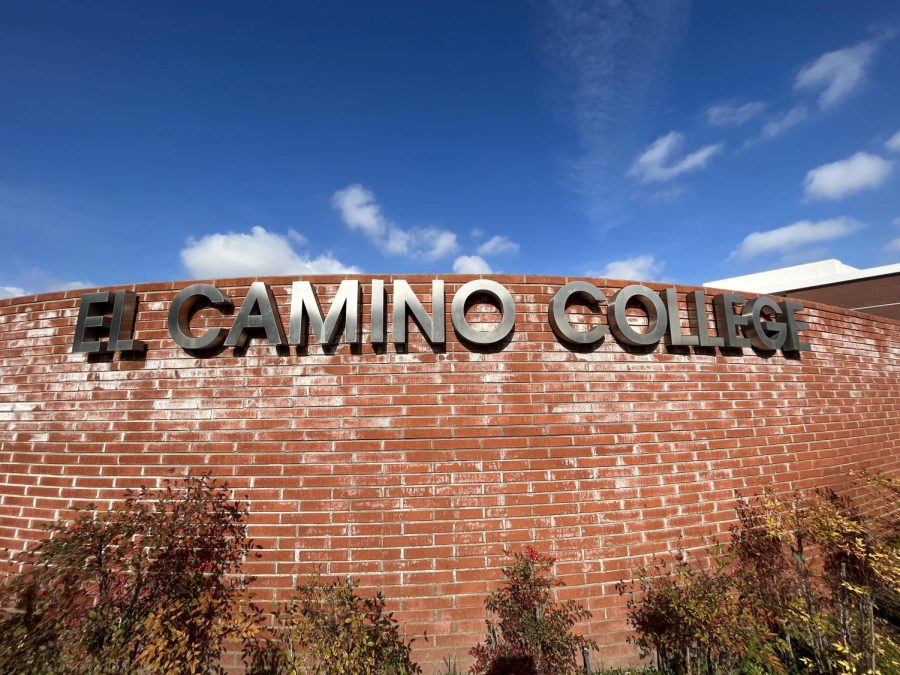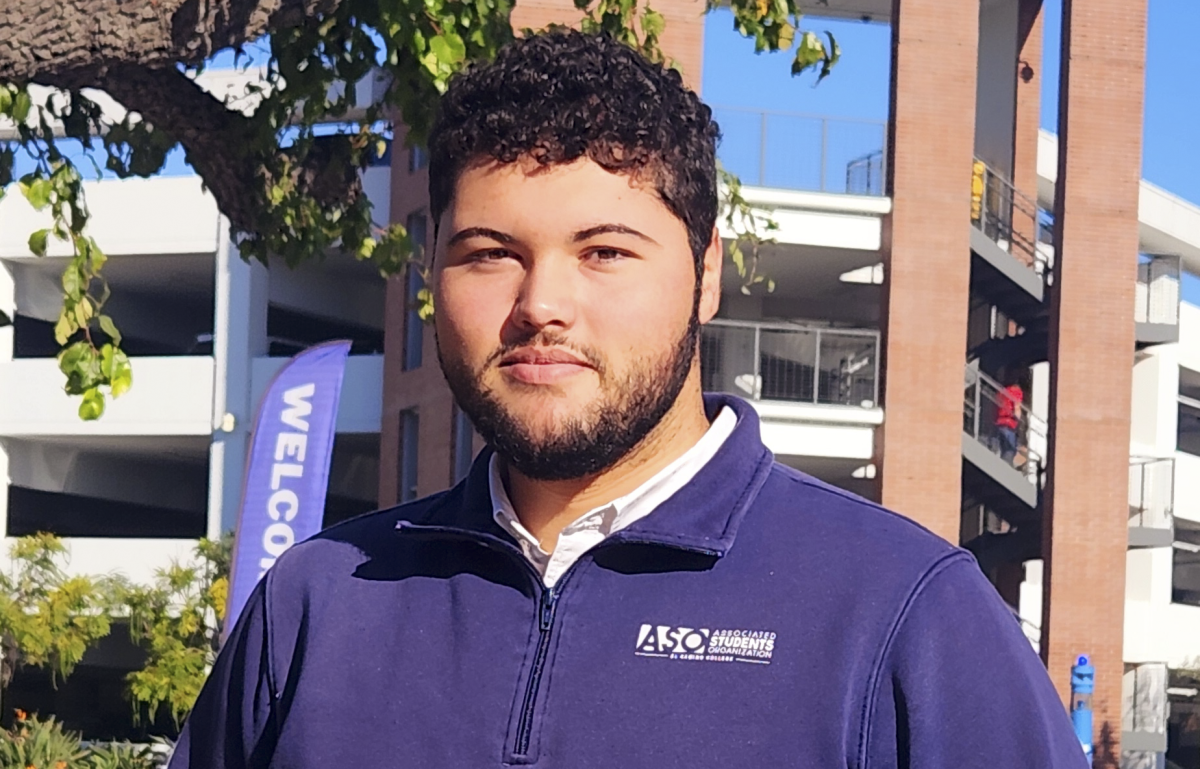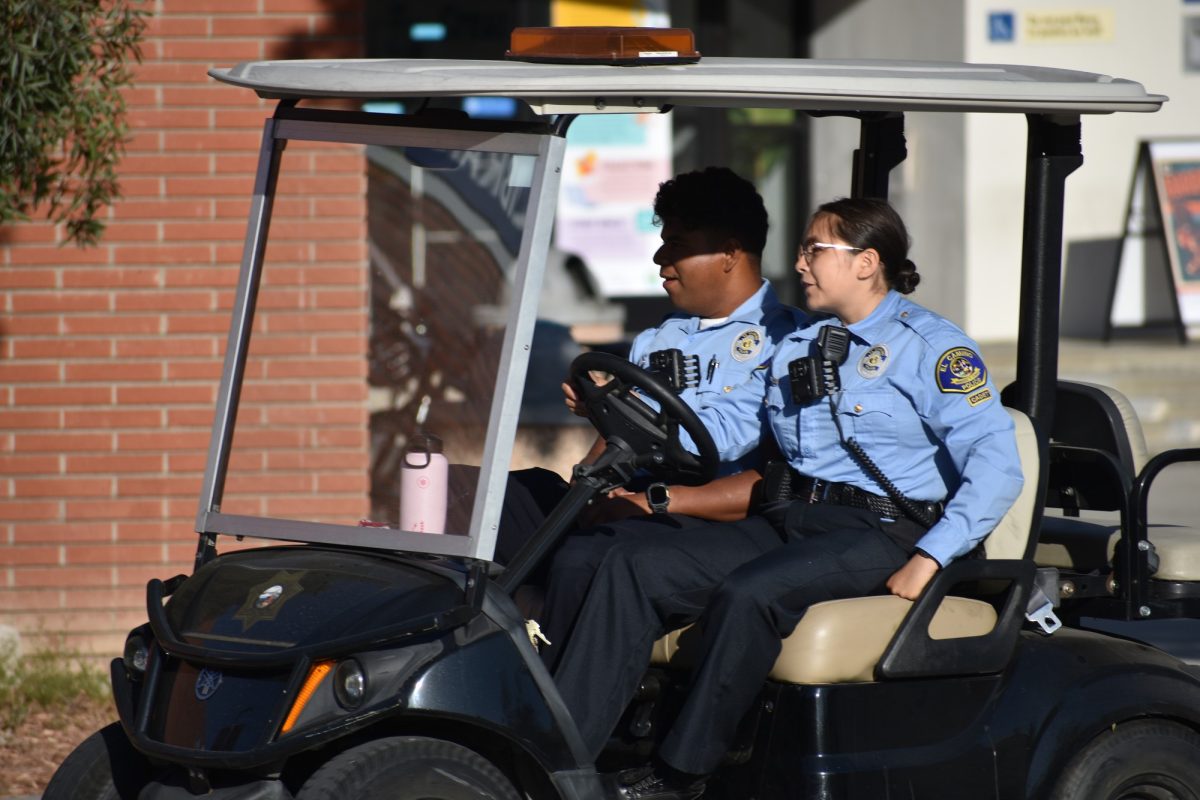Be respectful and polite and first impressions are everything, were just a couple of words of wisdom El Camino College Police Chief Michael Trevis gave to journalism students on Wednesday, Nov. 1.
Trevis came to The Union newsroom to speak with journalism students about the duties of campus police and how journalists can have a respectful relationship with them.
Although Trevis wants to help student journalists whenever possible, there are still certain things the police department cannot release to the media.
“We cannot release personal data of a person,” he said.
When it comes to ongoing investigations and cases, the department cannot release any information, until the case is closed.
“It is important we try to get [the information] right,” Trevis said.
Trevis said students need to try their best to get the facts right the first time because the community reads articles posted on The Union’s website.
“You have a degree of influence based on what you write,” Trevis said. “We count on the newspaper to get the word out and keep the community informed.”
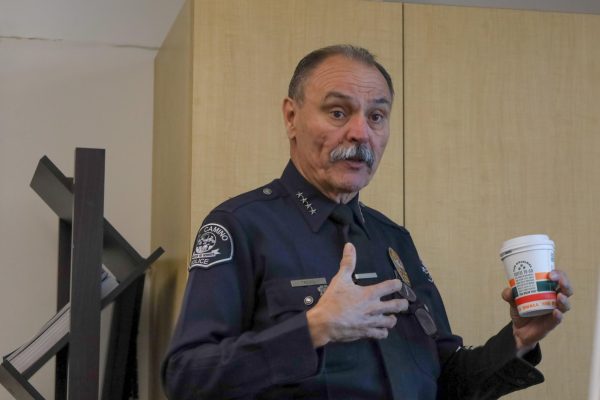
After nearly 49 years serving as a police officer, including 16 years as Chief of El Camino, Trevis feels there is a unique and vital relationship between the police and news reporters.
Trevis described how back in the 1970s, local newspapers in the district he served in made a difference in the community.
“The local papers were invested in local matters, came to city council meetings, ride-a-longs with police and kept the community informed,” he said.
Many of these local papers no longer exist as they were absorbed by larger papers, resulting in a decline in local reporting.
“I feel that it is not good when people are not being informed, it leads to confusion and misunderstandings,” Trevis said. “The Union is helping people at El Camino College stay updated and safe.”
Trevis wants to host more on-campus events to have the police department connect with students, learn about campus issues and provide safety tips and other resources.
The police department hosted a luncheon on Oct. 12 where officers talked about resources available for unhoused students. Future luncheons will discuss other prominent community issues.
“The best way to prevent crime is education,” he said.
In addition to the luncheons, Trevis said he’d like to bring back Campus Watch, an event in which faculty, staff and students from different departments on campus provide input on particular issues happening in their area.
Trevis said students could be hesitant to speak with police due to previous negative experiences, how the media portrays police or the intimidating appearance of an officer in uniform.
“I hope [students] are comfortable talking to the police, but I also know there are students who don’t like talking to police,” he said.
Trevis hopes these on-campus events will allow students to develop relationships with officers to a point where they feel comfortable addressing any safety concerns.
“The police are the community and the community are the police,” he said.
Union editors Delfino Camacho, Eddy Cermeno, Johan Van Wier, Ma. Gisela Ordenes, Nasai Rivas, Raphael Richardson and Union reporters Angel Pasillas, Emily Gomez, Joshua Flores and Kae Takazawa contributed to this story.






